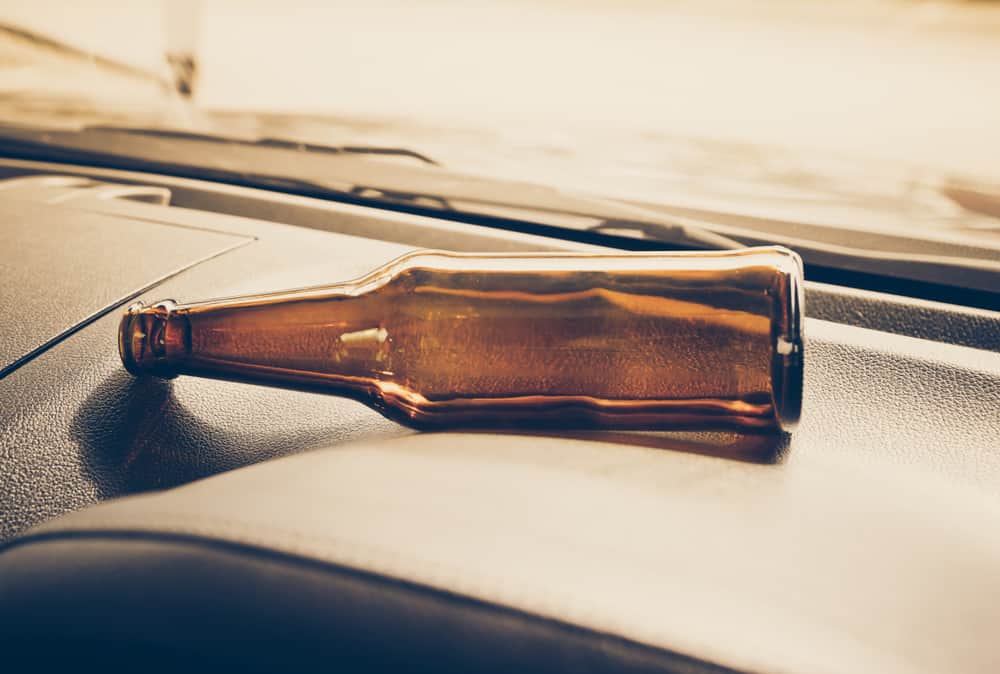
In Fort Worth, a commercial DWI conviction can cost you your livelihood. Even a first offense conviction will take you off the road for up to one year. A second offense can permanently cost you your CDL.
Fighting commercial drunk driving charges may be the only way to protect your future ability to earn a living. A commercial DWI lawyer in Fort Worth at the Law Offices of Randall B. Isenberg can help you fight to keep your commercial driver’s license and maintain your professional reputation.
Give us a call today: 214-696-9253.
What is a commercial DWI under Texas law?
In Texas, a commercial DWI is any DWI committed by an individual who holds a commercial driver’s license, whether the action occurred while the individual was operating a commercial or non-commercial vehicle.
When driving a commercial vehicle, operators cannot have a blood alcohol concentration (BAC) of 0.04 or more.
When driving a personal vehicle, the typical BAC limit of 0.08 stands.
What are the penalties for a commercial DWI in Fort Worth?
In Texas, fines and penalties for commercial DWI are much more stringent than they are for an individual drunk driving offense.
Upon conviction of drunk driving in a non-commercial vehicle, you face standard Texas DWI penalties. For a first offense DWI, you face a Class B misdemeanor charge that carries up to 6 months in jail and a $2,000 fine. If your BAC was 0.15 or above, you face a Class A misdemeanor charge with up to 1 year in jail and a $4,000 fine.
Your sentence may also include community service, substance abuse counseling, or attendance at a DWI education program, in addition to an ignition interlock device on your car.
The Texas Transportation Code (TTC) imposes additional disqualification penalties for commercially licensed drivers convicted of driving any vehicle while intoxicated.
Additional Penalties
The TTC refers to the suspension of your commercial driver’s license (CDL) as disqualification. Upon conviction, the state disqualifies you from operating a commercial vehicle for the statutorily defined term.
You are disqualified for one year upon conviction for a DWI or if you refuse to submit to a chemical BAC test.
You are disqualified for three years if, at the time of your arrest:
- You were transporting hazardous materials (that require a placard)
- You refused to submit to a chemical BAC test while transporting hazardous materials (that require a placard)
You are disqualified for life if, at any time:
- The state convicts you of a second commercial DWI
- You refuse to submit to a chemical BAC test after a first conviction commercial DWI
In addition to the criminal disqualification, a commercial DWI conviction also involves the threat of an Administrative License Revocation (ALR).
How does the ALR process work for commercial DWI?
The ALR process is a separate civil proceeding conducted by the Texas Department of Public Safety (TxDPS).
If you fail a BAC test, the arresting officer will seize your driver’s license and issue you a temporary, administrative driving permit. Unless you request an ALR hearing within 15 days, TxDPS will suspend your license, regardless of whether the state convicts you.
We can assist you with the ALR process. And, because it offers the first opportunity to review the evidence against you, we will also gain critical insight into potential defense strategies for your case.

Will Texas reinstate your CDL after two commercial DWIs?
The TTC does provide the opportunity for reinstating a CDL after a lifetime disqualification. Unfortunately, you must serve at least 10 years of your disqualification before you are permitted to apply for reinstatement. To apply for reinstatement, you must meet the conditions set by the department.
If you commit another disqualifying offense after reinstatement, a renewed lifetime disqualification without possibility of reinstatement will apply.
While TxDPS offers a limited, occupational license for non-commercial drivers, it does not offer an equivalent for a commercial driver’s license.

What are the possible defense options for a commercial DWI?
Because the laws governing commercial DWI in Texas are so stringent, mounting a defense presents more of a challenge than an individual drunk driving offense does.
One defense option commonly used for individual DWIs is the lack of probable cause for arrest. For an individual, the arresting officer must have probable cause to believe that a driver is statutorily impaired to make an arrest.
In the case of a commercial DWI stop, however, the officer only needs probable cause that you have any measurable alcohol in your system to make an arrest.
While we might have trouble fighting probable cause for an arrest, we can fight anything that occurs during the arrest.
If your BAC testing involved the use of a breathalyzer, all aspects of the testing process must comply with federal and state standards. This includes the Texas Administrative Code standards for breath alcohol testing regulations and the National Highway Transportation Safety Administration (NHTSA) standards for breath testing. TxDPS chemical testing certification standards also apply to the individual who conducted your testing and for the equipment used to measure BAC.
If any part of your chemical testing deviated from these standards in any way, we may choose to use this as a defense strategy for your case.
Schedule your free consultation today.
The potential consequences of a Fort Worth commercial DWI conviction can leave you unable to work in your industry. And, even if the state eventually restores your CDL, you are unlikely to find an employer who is willing to hire a commercial driver with a DWI conviction.
Selecting a Fort Worth DWI attorney to assist you can help protect your legal rights and improve your chances for a favorable outcome.
The Law Offices of Randall B. Isenberg offers a complimentary consultation and case review to help you evaluate your options for representation. Contact us today to speak to a commercial DWI lawyer in Fort Worth: 214-696-9253.










